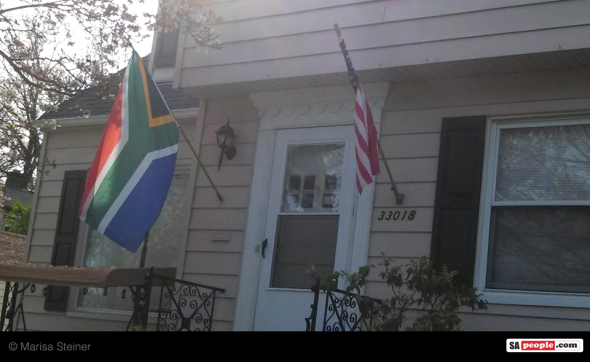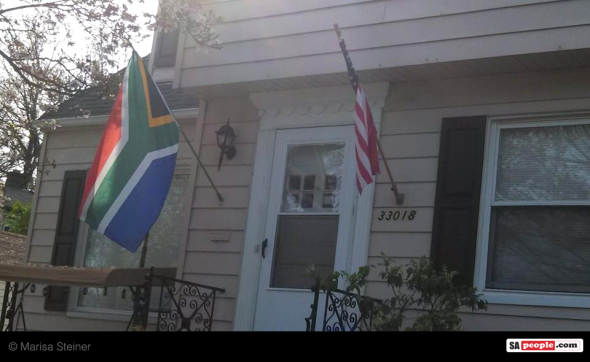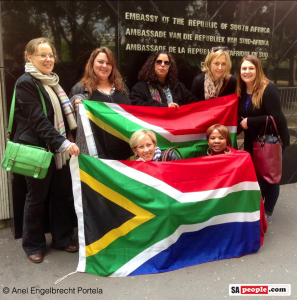
South Africans Abroad: Guide to the new Immigration Regulations
For those South Africans who are living abroad…but may one day return to South Africa, here is some vital information you will need to know about the new Immigration Regulations. The information below is based on a post by Intergate-Immigration which they have kindly given us permission to republish. South Africans abroad should be aware of […]

For those South Africans who are living abroad…but may one day return to South Africa, here is some vital information you will need to know about the new Immigration Regulations.

The information below is based on a post by Intergate-Immigration which they have kindly given us permission to republish.
South Africans abroad should be aware of the recent immigration law changes and the impact they may have on any future plans to return to South Africa with their partners.
A failure to be aware of them, and their possible intent going forward, could have a profound effect on their ability to return to South Africa with their families.

Below we take a look at the events leading up to the new regulations, the current outcome and most importantly we give you some hints and tips about what you should do to guard yourselves and plan ahead.
We encourage all South Africans abroad to read the below. Whilst you may not have any current plans to return to South Africa, who knows what the future holds?
What is the background to this – the lead up
The Department of Home Affairs (DHA) reviewed the immigration regulations in early 2014. This resulted in draft regulations being published in mid February with a public comment period ending the first week of March.
These draft regulations saw some sweeping changes to certain types of permits and visas, including those which are applied for by the ‘foreign partner’ of South Africans returning home.
The first change we note is rather a cosmetic one as all ‘non permanent’ residency applications were now to be called visa’s, and those applications for permanent residence called permits.
The second and most important proposed change was to the time periods relationships needed to have existed for in order to apply for certain permit and visa types.
These draft regulations proposed an increase from no time period (required for a life partner applications), to that of 5 years.
In layman terms if you cannot prove you have cohabitated with your foreign partner for 5 years, they could not return to South Africa with you on a life partner visa.
Did it get passed?
There was much comment about the unfairness of this proposed regulation change and thankfully some reason was shown. However it was still increased from no time period to 2 years proof of cohabitation.
This means those South Africans abroad, in a permanent relationship but not married, now must prove 2 years cohabitation for a life partner visa to be issued.
What’s the rationale behind it?
It is important to not just observe the new rule of 2 years cohabitation but to look at the possible intent and rationale behind it.
The DHA is aware, and it is widely accepted, that the Life partner permit was one of the most abused permit categories. With no time limit on the qualification of what was and was not a permanent relationship, there is little doubt many people saw this as an easy way into South Africa. The result being permits issued to life partners, who were in all reality not life partners, but simply relationships of convenience.
The DHA is attempting to stop ‘bogus’ immigration to South Africa and this is one of the areas it is focusing on. Whilst there is nothing wrong with this, one has to question the over riding rule that they see as the answer, the 2 years cohabitation period.
What’s wrong with the two year cohabitation rule?
There are a number of issues surrounding this rule:
- Some genuine couples cannot prove two years cohabitation – it is common in this day and age for individuals to have very separate finances and not be able to furnish the documentary proof of their cohabitation.
- Why two years? – we have no idea where the two years came from, why not 18 months or 26 months. There is no prescribed period of time for a couple to meet and decide to spend their lives together.
- It takes no account of other factors – what if you have children together but cannot prove cohabitation?
- Same sex relationships – still frowned upon in some countries, same sex couples may have to go out of their way to prove ‘they don’t live together’ due to archaic laws in the country in which they stay.
- No other alternative visa – there is no alternative visa that allows for the foreigner to get an endorsement to work.
- The criteria may get harder – it shows a possible intent to keep increasing the amount of time a couple may have to prove cohabitation and a tightening of the rules. Remember the initial intent was for 5 years until public comment was reviewed.
- No notice of implementation – the new rules were implemented with just one day’s notice ruining many people’s plans.
So if I am married I am fine?
Many of you reading this may think that as a married couple you are fine, or indeed the answer for those who are not, is to run out and get married. Aside from the fact being forced to marry is grossly unfair, there is no guarantee a similar time period may not be imposed on married South Africans abroad.
In fact this situation may well be forced. South Africa has had a court case previously (The National Coalition for Gay and Lesbian Equality versus the Minister of Home Affairs) whereby it stated that life partners must be treated exactly the same as those married.
Currently they are not – spouses have no time periods to comply to, whereas life partners have two years. There is little doubt that at some stage this will be challenged to make it equitable. As the precedent is already in place it is easy to assume such a court case would win and see spouses needing to be married for 2 years.
If so the DHA has two choices:
- To impose a 2 year time period on spousal applications
- To remove the 2 year time period on life partner applications
As they have targeted life partners as an abused visa class, you can see option 1 may be more attractive to them.
So what should you do?
Below we look at some different scenarios but also encourage you to make contact with us to discuss your own situation as the below is only generic advice.
- Married for 5 years and possibly returning to South Africa
Our advice is to apply for your spousal permanent residence as soon as possible. If you qualify at the moment seize the opportunity and secure your spousal permit. Spousal permanent residence only require you come to South Africa once every 3 years for it to remain valid and this can be for a very short trip in and out.
- Married for less than 5 years and possibly returning to South Africa
In this case make an application for a spouse visa as soon as possible. The spouse visa is valid for up to 2 years. Please note once in receipt you may have to come to South Africa just once to activate the spouse visa depending upon how the mission issues it. In addition once you have been married for 5 years you should apply for spousal permanent residence to secure a long term status.
- In a permanent relationship and can prove 2 years cohabitation and possibly returning to South Africa
Again we encourage you to secure your visa now by applying for a life partner visa. This is valid for up to 2 years. Please note once in receipt you may have to come to South Africa just once to activate the life partner visa depending upon how the mission issues it.
- In a permanent relationship and can prove 5 years cohabitation and possibly returning to South Africa
Make an application for life partner permanent residence and secure your long term status. Again, you need only come to South Africa once every 3 years to maintain this permanent residence status.
- In a permanent relationship and cannot prove 2 years cohabitation and possibly returning to South Africa
There is little you can do other than wait it out or explore other visa options. What is important is to ensure you start to build up proof of your cohabitation. Make sure you have shared bank accounts, assets and liabilities.
- In a permanent relationship with children and no proof of cohabitation
You can make an application for a relative’s visa or permanent residence. The visa will be applied for on the basis of first kin to the children (they need to be registered as South African) and will allow you entry into South Africa, it will not however allow to work, study or run a business. The permit will again be made on the basis of first kin to your child(ren) and will get you permanent residence status if your application is approved.. This will take some time but will allow you to work, study or run a business.
- Unsure of your South African citizenship
Where you are the South African in the relationship and have now obtained dual citizenship, and are unsure if you followed the correct protocol, you should apply for a citizenship check. It is an area many shy away from and hope never arises, or is found out, but it will and it has a profound effect on any children you may have.
- Where you have children together
Make sure you register them as South African and obtain South African passports.
Travelling to and from South Africa
It is a requirement that if you hold a South African passport or qualify for one, you always travel to and from South Africa with this passport and not any others you may hold.
Conclusion
Of course what is in the rules is important, but rules change, in the DHA’s case with no notice.
None of us now what our futures hold and if you think your future might, just might, involve a return to South Africa we encourage you to seek advice and plan now.
Click here to view the original post on Intergate-Immigration or visit Intergate-Immigration’s Facebook page.
